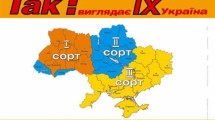Abstract
First World War is the turning point of building a new era, which will preside over the emergence of new forms of radicalism, of totalitarian regimes. But before that, the First World War closes in a brutal manner the slow decadence of some great empires, including the Austro-Hungarian Empire. Through his totalizing vocation, the novel is the most appropriate document capable of recording this process that leads to finis monarchiae. In the present paper I analyzed three different perspectives on war as a catalyst and expression, face of decadence with Jaroslav Hasek’s novel, Good Soldier Svejk, Liviu Rebreanu’s novel, Forest of the Hanged, and Joseph Roth’s novel, The Radetzky March. From the joyful apocalypse of Hasek’s novel to the “wounded identities” of Rebreanu’s heroes and the aristocratic ethos cultivated among the bourgeoisie on which the empire is based in Roth’s novel, we have a complex picture of the decline of belle époque society and the values on which it relies. The image of the Imperial officer as well as the simple soldier puts into play a code of honor and a kind of solidarity meant to overcome the sensibilities of national identity. I have been pursuing this conflict between unifying, imperial identity and national identities as a factor of the empire’s dissolution, especially where double engagement provokes a tragic tension.
Similar content being viewed by others
Notes
https://libcom.org/files/The%20Good%20Soldier%20Svejk%20-%20Jaroslav%20Hasek.pdf. For the Romanian version, see Hašek (1983, p. 441, 442).
References
Adam, M. (2004). Essai sur la bêtise. Paris: La Table Ronde.
Boia, L. (2014). Primul război mondial. Controverse, paradoxuri, reinterpretări [The First World War. Controversies, paradoxes, interpretations]. Bucuresti: Humanitas.
Bruckner, P. (2000). Euforia perpetuă (Trans. Cr. & Co. Popescu). Bucuresti: Trei.
Caragiale, M. I. (2001). Opere (Ed. B. Cioculescu). Bucuresti: Univers Enciclopedic.
Gilman, R. (1979). Decadence. The strange life of an epithet. New York: Farrar, Straus and Giroux.
Hašek, J. (1983). Peripețiile bravului soldat Švejk [The fateful adventures of the good soldier Svejk during the World War, Book One] (Trans. J. Grosu). 5th revised edition. Bucuresti: Cartea Românească.
Kohn, G. (2008). Galben-negru până în măduva oaselor și dinastic până la exces; Ultimul secol al ofițerului habsburgic. [Yellow-black to bone marrow and dynastic to excess; The last century of the Habsburg officer]. In C. Vălcan (Ed.), Splendoarea decadenței. Viena 1848–1938 [The splendour of decadence. Wien 1848–1938]. Timisoara: Bastion.
Marinetti, F. T. (2009). Manifestele futurismului [The manifestos of futurism] (Trans. E. D. Drogoreanu). Bucuresti: Art.
Nagy, E. L. (2008). Un portret al burgheziei imperiale [A portrait of imperial bourgeoisie]. In C. Vălcan (Ed.), Splendoarea decadenței. Viena 1848–1938 [The splendour of decadence. Wien 1848–1938]. Timisoara: Bastion.
Ortega y Gasset, J. (1997). Spania nevertebrată (Trans. S. Mărculescu). Bucuresti: Humanitas.
Papadima, L. (1999). “A ști,” “a face,” “a mânca”; o viziune hipersintactică [“To know,” “to do,” “to eat”; a hypersyntactic vision]. In Caragiale, firește… [Caragiale, certainly…] (pp. 10–17). Bucuresti: Fundația Culturală Română.
Pollak, M. (1998) Viena 1900. O identitate rănită [Vienna 1900. A wounded identity] (Trans. C. Fetița). Iasi: Polirom.
Rebreanu, L. (1980). Forest of the hanged. Bucuresti: Minerva.
Roth, J. (1966). Marșul lui Radetzky [The Radetzky march] (Trans. I. Cassian-Mătăsaru). București: Editura pentru Literatură Universală.
Schorske C. E. (1979). Fin-de-siècle Vienna. Politics and culture. New York: Knopf.
Weir, D. (1995). Decadence and the making of modernism. Amherst: University of Massachusetts Press.
Zweig, S. (2012). Lumea de ieri [The world of yesterday. Memories of a European] (Trans. I. Nastasia). Bucuresti: Humanitas.
Author information
Authors and Affiliations
Corresponding author
Rights and permissions
About this article
Cite this article
Mitchievici, A. Decadence of an empire: war, heroism and derision. Neohelicon 45, 83–95 (2018). https://doi.org/10.1007/s11059-018-0433-1
Published:
Issue Date:
DOI: https://doi.org/10.1007/s11059-018-0433-1




